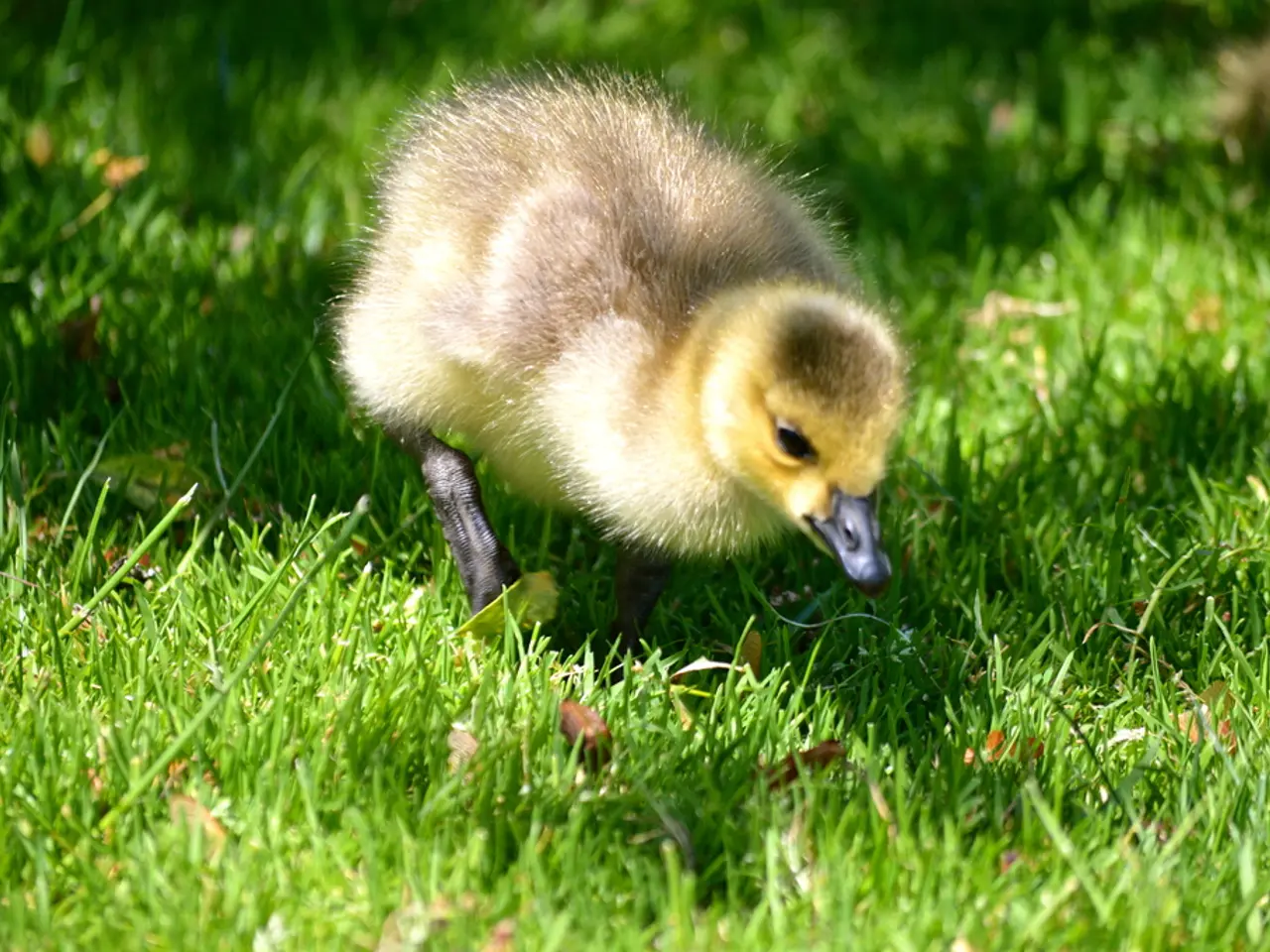Essential Health Measures for Poultry Farmers: Guidelines to ensure safe duck farming practices
In the world of duck farming, maintaining the health and well-being of your flock is crucial. Here's an overview of some common diseases that affect ducks, along with prevention and management strategies to keep your ducks healthy and productive.
Firstly, let's discuss Avian Influenza, commonly known as Bird Flu. This disease is caused by the influenza A virus and can affect various bird species, including ducks. The virus can range from low pathogenic forms causing mild symptoms to highly pathogenic strains causing severe illness and high mortality rates. To prevent the spread of Avian Influenza, it's essential to maintain strict biosecurity measures. This includes controlling access to poultry areas, cleaning equipment regularly, and avoiding sharing feed or water between flocks. In the event of an outbreak, infected flocks are usually depopulated to control the spread, especially with highly pathogenic strains.
Internal worm infestations are another common issue faced by ducks. These can include roundworms and gapeworms, which inhabit the respiratory tracts of ducks, causing breathing problems. To prevent internal worm infestations, good pasture management is key. This includes resting grazing areas and keeping grass short to expose worm eggs to sunlight, reducing parasite survival. Preventing contamination by avoiding overcrowding and mixing different age groups is also important. In terms of management, regular worming treatments, at least twice a year, using vet-recommended anthelmintics, are necessary. Monitoring for symptoms like weight loss, respiratory distress, and abnormal droppings is also essential.
Salmonella infection is another concern for duck farmers. Ducks can carry Salmonella bacteria and spread it through feces, potentially infecting humans and other animals. To prevent Salmonella infection, practicing good hygiene is crucial. This includes washing hands thoroughly after handling ducks, eggs, or equipment, keeping poultry supplies and living areas clean and separated from human living spaces, and avoiding kissing or snuggling ducks. If an outbreak occurs, contaminated areas should be cleaned and disinfected, and affected flocks managed under veterinary guidance to prevent further spread.
In addition to these disease-specific strategies, maintaining adequate nutrition and a clean water supply, quarantining new or returning birds, regularly cleaning and disinfecting housing, equipment, and water sources, closely monitoring flock health, and consulting a veterinarian promptly for diagnosis and treatment are general recommendations for prevention and management.
By integrating biosecurity, environmental management, regular health monitoring, and veterinary consultation, many common duck diseases can be effectively prevented and controlled, ensuring the health and productivity of duck flocks. Investing in preventive healthcare can save money, improve productivity, and lifespan of ducks.
For specific advice on vaccines and timing, consult a local veterinarian. When introducing new ducks to the flock, it's recommended to keep them separate for a few days before mixing them. Avoid feeding stale or spoiled feed to ducks, and watch out for early signs of sickness such as loss of appetite, sitting quietly in corners, or abnormal droppings. Use clean and fresh water for drinking and bathing. Vaccination against Duck Plague is given at 8-12 weeks of age, and against Duck Cholera at 3-4 weeks of age and repeated at 18 weeks.
Raising ducks can be rewarding with proper care, vaccination, feed quality, and housing cleanliness. With these guidelines in mind, you're well on your way to maintaining a healthy and productive duck flock.
In the realm of health and wellness, it's important to consider the application of therapies and treatments beyond duck farming. For instance, science has made significant strides in managing medical conditions, including chronic diseases, through fitness and exercise. Regular physical activity can help improve overall health and reduce the risk of various ailments.
Moreover, in the realm of human health, preventing the spread of contagious diseases like Salmonella is crucial. This can be achieved through maintaining personal hygiene and clean living spaces, muchLike the biosecurity measures employed in duck farming.
Finally, to maintain optimum health and well-being, the importance of regular health check-ups and professional consultation, be it for ducks or humans, cannot be overstated. Prompt diagnosis and intervention can help manage conditions effectively, much like the vet-recommended strategies in duck farming.




